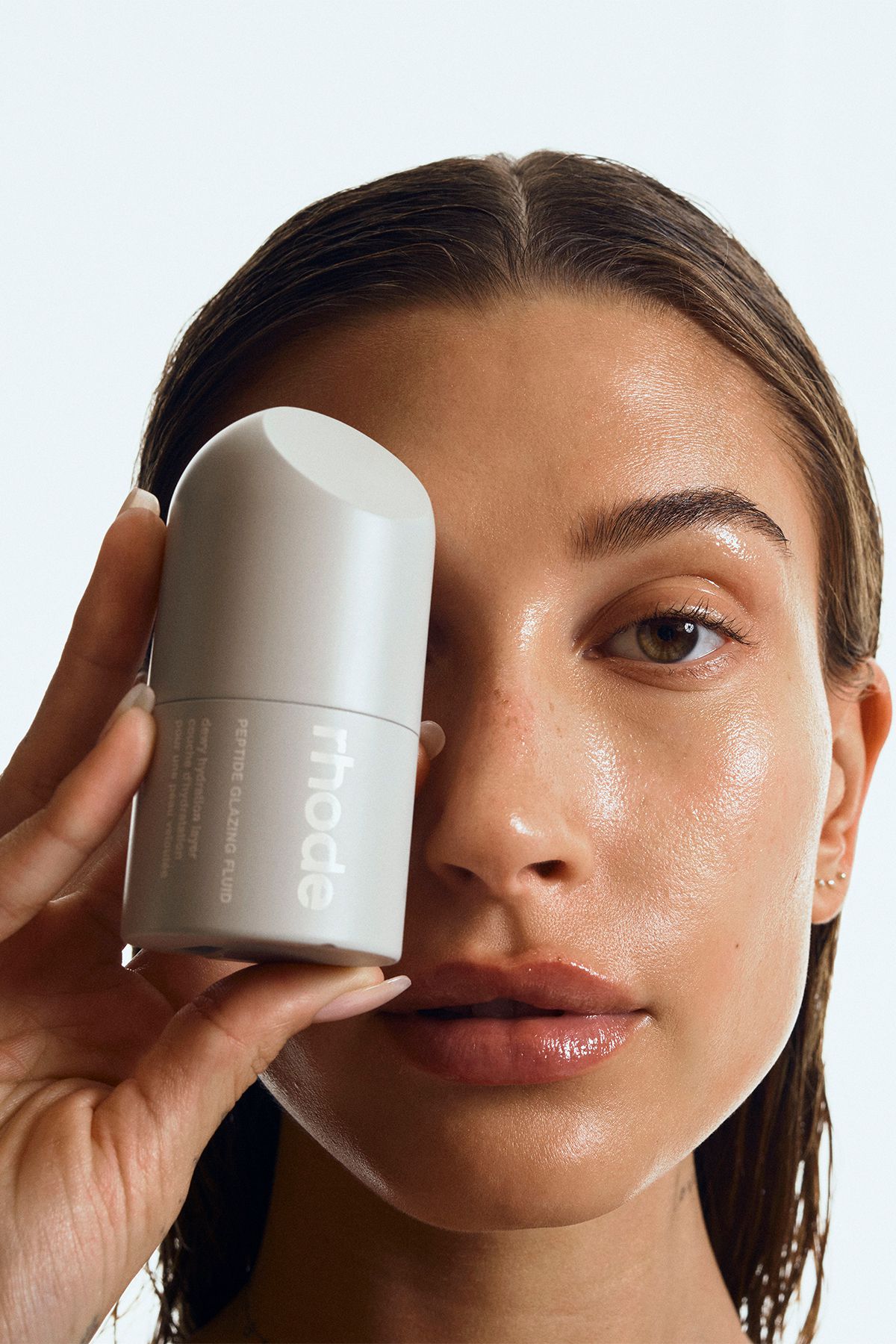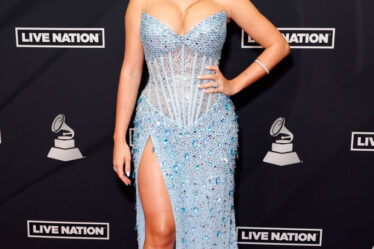
I have written about celebrity and influencer beauty brands endlessly: why there are so many of them, why some of them work (and why most don’t) and which categories fare better than others. I’ve opined on why some famous founders are outliers and have called a fair amount of these brands flops. I‘ve dissected their meticulously timed marketing, product and distribution strategies and the different ways celebrities bring their brands to life.
This week, the subject feels particularly timely. Two of the most talked about celebrity skin care brands of the year will make their debut six days apart: Hailey Bieber’s Rhode launches on Wednesday, and on June 21, Kim Kardashian’s SKKN by Kim goes on sale. Bieber, 25, is starting with three products that cost under $30 and Kardashian, 41, is releasing a nine-product routine, including an $85 moisturiser and $95 serums.
When a celebrity announces they’re coming out with a beauty brand — like Kardashian did two weeks ago to drum up buzz ahead of next week’s release — a strong emotional response is sure to follow. We’re trained to be either bitter towards or thrilled about these ventures. Celebrities prefer the latter (though many will happily take the former). I interviewed Kardashian and Bieber in the weeks leading up to their launches, and both acknowledged the dreaded celebrity brand trope, the one where a famous person slaps their name on a product and calls it a day. (Ariana Grande’s “Chapter 3″ makeup collection also drops tomorrow.)
“I want to be the majority owner of the brand. I have lent my face and my name to other brands for a long time. I’m not interested in doing that again,” Bieber told me. “I’m too picky and too intentional to just let an incubator tell me how I should make my products, the branding.”
But are Bieber’s and Kardashian’s brands really that different from the non-celebrity beauty lines, new products and collaborations that come out every single day, like Fashion Nova, which launched NovaBeauty yesterday? The majority of makeup or skin care lines, started by a famous person or not, won’t make it. The market is too crowded, and the customer is more discerning than ever.
And yet we can’t look away, even as people continue to root against celebrity beauty brands. Why do Bieber and Kardashian think they have what it takes to be something more?
The American Way
We’ve been told that hard work and a good idea is all you need to succeed — it’s the American dream. Or as Kardashian put it recently, “Get your f—— ass up and work.”
But as the line between celebrity and a normal person blurs, or as the time from going from normal person to influencer or celebrity gets truncated, the immediacy of monetising this relatively newfound fame via beauty elicits a negative reaction.
Responses range from confusion (“What does this teenager actress know about skin care?”) to incredulity (“Does this person really use their own products?”) to disdain (“Is it really necessary for this Gen-Z reality star to start a baby line?”). When the celebrity or influencer is especially polarising, the reaction is vitriolic. There’s always a subset of fans excited to try their favourite singer’s new fragrance, but mostly, we’re skeptical of these ventures. Or maybe it’s just that famous people just have a shortcut and a built-in audience — and the public hates that.
Rhode and SKKN take opposite approaches to addressing this potential problem. Bieber’s a minimalist and Kardashian’s a maximalist, but both say their brands are true to the way they take care of their own skin.
“You don’t need a million things to have great skin. The majority of the time doing less is more. I really wanted to just have these edited steps, these edited products,” Bieber explained. “I don’t like things that are hard and complicated. I want effortless. I want easy. I want just realistic, basically.” She’s about “less steps, less products” and can’t stand going to a website to buy skin care and seeing “like a hundred things to choose from and you just feel lost.”
Then there’s Kardashian, who swears by a nine-step routine that she knows is over the top. She admits her appearance isn’t “all natural.”
“I really wanted to just stay true to exactly what I use, even if everyone was saying this is overwhelming and there’s a lot of products and [most] people launch with three to four products,” Kardashian said.
A Potent Cocktail
A pledge of authenticity, even from a celebrity, may not be enough to guarantee success, especially in skin care, a category where it’s harder to gain credibility in than makeup. (The most successful celebrity beauty lines, Rihanna’s Fenty Beauty and Selena Gomez’s Rare Beauty, both predominantly sell makeup.) A celebrity can help drive trial purchases, but that’s about it; the product has to then stand on its own to drive repeat behaviour.
A famous founder alone will get you trial, product alone will get you loyalty, and the combination of the two is a potent cocktail.
An executive at a leading talent agency who works on celebrity brand deals (and doesn’t personally work with Bieber or Kardashian), told me that whichever of the two’s conviction or “why” is stronger will be the key to capturing customers. Bieber and Kardashian aren’t convincing followers that their toner or serum is superior, they’re convincing them of their approach, their ethos and their mission to skin care. A customer will either subscribe to Kardashian’s philosophy of more is more or they will resonate with Bieber’s simplistic approach.
If the two products were going head-to-head on skin care, “you could make an argument easily that Hailey, because of what she stands for and her less makeup look, that might actually translate better,” this person said.
Even as they position themselves differently, something that unites the two brands, besides muted grey packaging, is that Bieber and Kardashian didn’t describe their brands to me as “clean” or “non-toxic.” They used terms like “effective,” “beautiful dewy hydration,” “glow of a lifetime” and so on, but neither mentioned what their products are made without, or are “free of.” It was refreshing, for once, to talk to someone who didn’t point out that their skin care isn’t formulated with a bunch of stuff that should never be in (or is prohibited from being in) skin care in the first place.
Rhode and SKKN aren’t going head to head, at least not directly. Even so, Bieber may find success comes easier: she’s the embodiment of the minimalist beauty and skin care she’s selling. Bieber is extremely likeable, non-controversial and has talked about skin care and her beauty routine for years. Plus, the products are approachably priced — her moisturiser, priced at $29, is about one third of the price of Kardashian’s. On the other hand she’s also 25 with perfect skin, and it’s unclear if anyone over 25 wants to take skin care advice from a genetically blessed Gen-Z-er.
Put simply, a celebrity brand is forcing a transaction based on your character and your perception in the market. For either line to work, one of two things has to happen: people must like Bieber or Kardashian enough to follow them blindly into any endeavour or want to look like either of them enough to buy their skin care. Then time will tell if the products can stand on their own.



